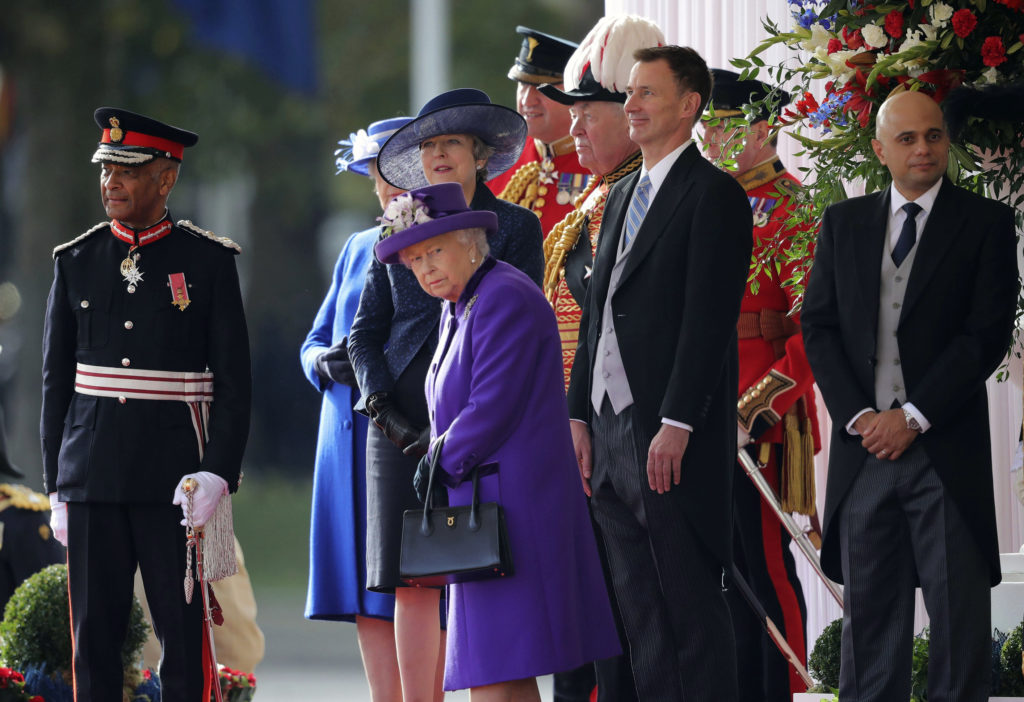Britain’s decision is a serious setback for the Iran-Hezbollah-Syrian axis to finance its costly expansionist policies in the Middle East.
By Daniel Krygier, World Israel News
The United Kingdom’s recent decision to outlaw Hezbollah’s so-called political wing could potentially change the dynamic of European-Israeli relations and bring a measure of European moral clarity on terrorism, as well as putting the hurt on the terror group’s ability to raise funds.
The U.K.’s Home Secretary Sajid Javid stressed that the decision to designate all of Hezbollah as a terrorist organization was guided by the need to protect the British people. Mr. Javid also blasted Hezbollah for its role in undermining the Middle East.
“Hezbollah is continuing in its attempts to destabilize the fragile situation in the Middle East – and we are no longer able to distinguish between their already banned military wing and the political party. Because of this, I have taken the decision to proscribe the group in its entirety.”
The redefinition of Hezbollah requires parliamentary approval, which could still be torpedoed by the leftist opposition leader Jeremy Corbyn who has referred to Hezbollah and Hamas as his “friends.”
Hezbollah is designated as a terrorist organization by Canada, the U.S., Israel, the Netherlands and the Arab League. Despite a long history of terrorism since the 1980s, it was only after Hezbollah’s terrorist attack on Israeli tourists in Bulgaria in 2013 that they European Union designated Hezbollah’s military wing as a terrorist organization.
Five Israeli civilians were murdered and 32 were injured during Hezbollah’s terrorist attack at the Burgas airport in Bulgaria. However, the E.U., and its leading member state Germany, still refuse to define all of Hezbollah as an illegal terrorist entity.
As a result, Hezbollah’s so-called political wing has been allowed to parade through the streets of Europe while calling for the destruction of the State of Israel. Large Hezbollah-organized rallies have been held in major European cities like London and Berlin.
If the British parliament approves the decision to outlaw all of Hezbollah, it will likely put an end to overt Hezbollah rallies in the streets of London. More importantly, it could initiate a chain reaction that undermines Hezbollah’s financial viability.
Hezbollah is already in financial trouble, as evidenced by its recent launch of a crowd-funding campaign, a result of financial pressures connected to U.S. sanctions against its main sponsor Iran.
Outlawing Hezbollah in Britain will put a further crimp in its fund-raising efforts. Europe is an important source of finances for Hezbollah activities. Various European-based Muslim organizations and self-described human rights organizations serve as fronts for collecting donations that are sent to Hezbollah in Lebanon.
According to several German intelligence reports, there are around 950 Hezbollah operatives in Germany whose work focuses on recruiting new members and raising funds.
If Germany and the E.U.’s persist in their unwillingness to follow Britain’s lead, it’s likely connected to the their commercial and diplomatic ties with Iran. Britain had until recently also supported commercial ties with Tehran.
London’s decision to outlaw the entire Hezbollah organization reveals the growing cracks in a united European front on Iran and Hezbollah. It is a serious setback for the Iran-Hezbollah-Syria axis to finance its costly expansionist policies in the Middle East. It also undermines Hezbollah’s ability to financially maintain its military might against Israel.
While much of Europe and Israel disagree on the Arab-Israeli conflict, there is a growing European-Israeli cooperation to combat terrorism. Israeli intelligence agencies have assisted their European counterparts in thwarting Islamist terrorist attacks on European soil.
Outlawing the entire Hezbollah terrorist organization is ultimately a win-win situation for the West, Israel and the Arab League.


